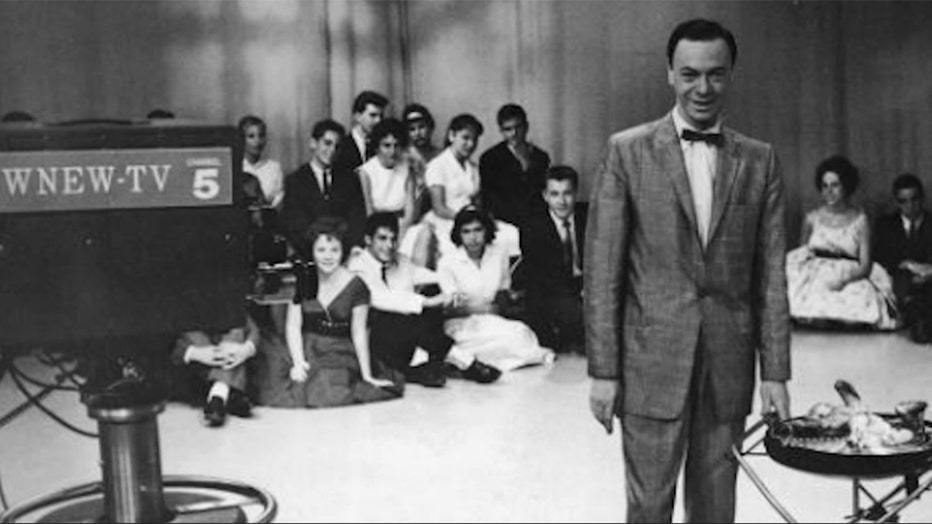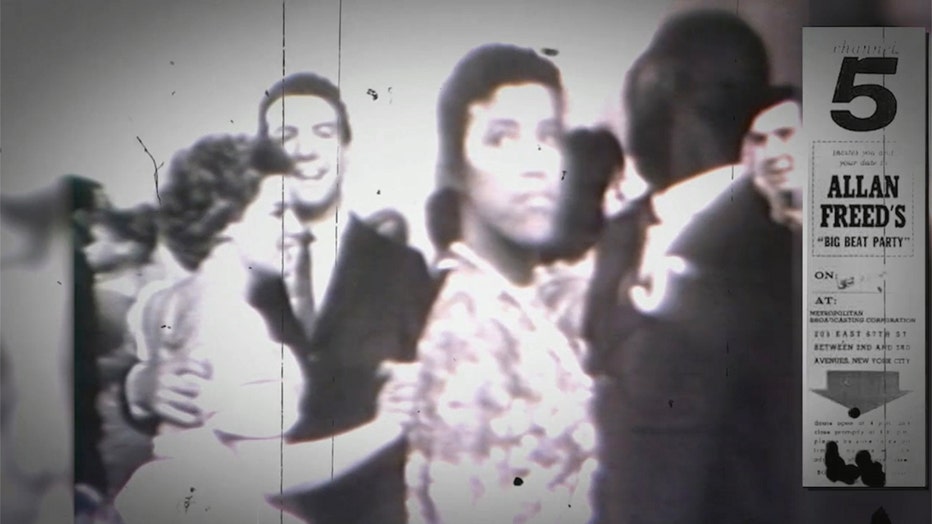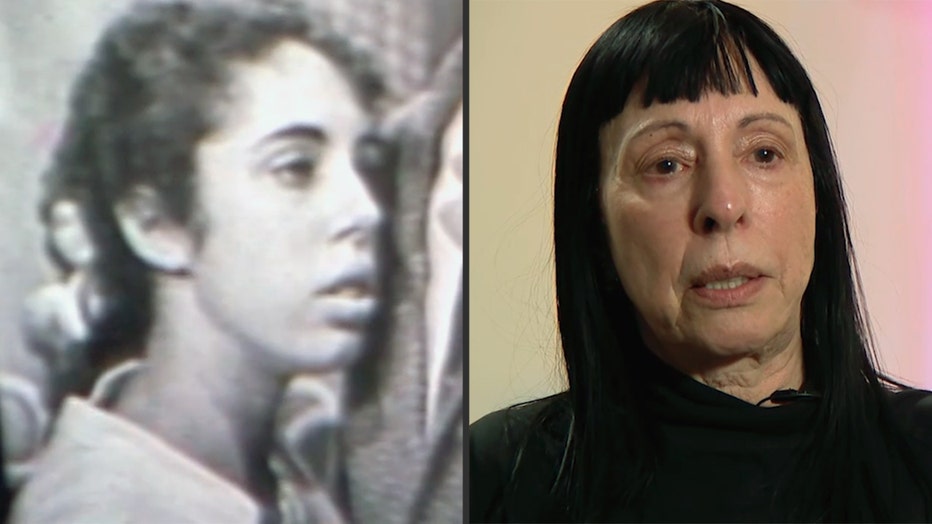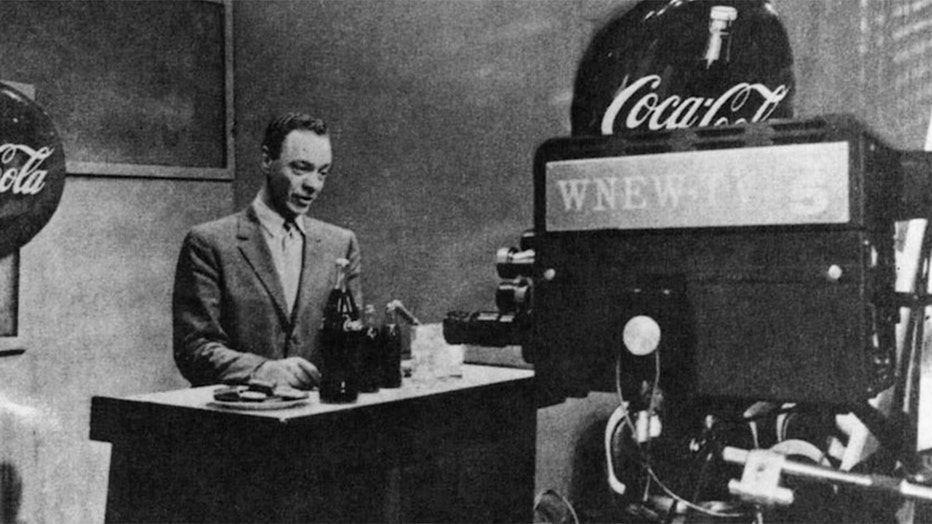The Big Beat: Alan Freed, Channel 5 and TV's first interracial teen dance show
A screenshot from the dance TV show "The Big Beat" on WNEW-TV/Channel 5.
NEW YORK - Did you know that the first interracial teen dance television show took place in New York City? And did you know it took place in the same building we work out of today at FOX 5 NY?
See, before American Idol or MTV, even before Dick Clark's American Bandstand, there was a man named Alan Freed.
"Alan Freed is one of the most important people in the history of rock and roll," Rolling Stone contributing editor Anthony DeCurtis said.
Freed — who got his start as a radio disc jockey in Ohio — is widely credited with first introducing the phrase "rock and roll" to the American lexicon.
"He played the most exciting stuff," DeCurtis said. "He really didn't like, you know, when white artists like Pat Boone would do kind of tepid covers of R&B songs. He liked the real thing and brought that to audiences."
For example, in the case of the classic song "Tutti Frutti," Freed would play the original Little Richard version.
"Alan Freed brought the music that we think of as rock and roll to the radio and to white teenagers," DeCurtis said.
He put together what's believed to be the very first rock concert ever — the Moondog Coronation Ball.
His popularity landed him motion picture roles in movies like Mister Rock N Roll and even a national television show called The Big Beat.
"And it was really gathering an audience," DeCurtis recalled. That is, until one particular episode.
"Stations in the South saw Frankie Lyman of Frankie Lyman and the Teenagers dancing with a white girl on the show, and that was that," DeCurtis said.
Get breaking news alerts in the free FOX5NY News app | Sign up for FOX 5 email newsletters

Alan Freed and dancers in a studio at WNEW-TV/Channel 5 in New York.
Freed was taken off the national airwaves. And The Big Beat became a local New York City program, moving to a television studio on the Upper East Side — WNEW, what is now WNYW/FOX 5 New York.
Peter Facini, FOX 5's managing editor, recently found an old piece of video in our archives.
"It just caught my eye," Facini said.
It was a 1959 taping of The Big Beat. And contrary to the former national show, this version was an interracial teen dance show. And no one ever batted an eye. No records remain of who attended those tapings, however, that same video also lives on YouTube.
"So we started going through the comments," Facini said. "'Alan Freed was a pioneer,' 'Groundbreaking stuff'…"
One stood out.
"From Whitney D: 'I was one of the regular dancers on the Alan Freed TV show,'" Facini read from the screen. "Now we have to find Whitney D."
Turns out, when you're an actress — with a YouTube profile to boot — you're easier to find. Whitney Devlin has made appearances in a Justin Timberlake music video, the Netflix series Russian Doll, and several appearances as herself, playing a teenage dancer on The Big Beat.

A screenshot from Freed's show.
"I was so young," Devlin said to herself, as she watched that clip again during our interview. "I didn't think I looked that young."
She was 14 at the time.
"I think I saw the show on television and just decided to go down," she said.
Now 78, Devlin lives just 10 blocks from the studio. But showing up for the interview was the first time she'd been back since the show came to an abrupt end.
"When we walked in, it was just open like this," she said, entering the studio. "The music would come on and we'd get up and dance."
Now mostly used for storage, Studio 1 looks a bit different today. But Devlin said, even so, there was still something about the way it felt, standing in that space 64 years later.
"I almost kind of could get a little teary because it was really very special," she said. "I've done a lot of things, but nothing as exciting as that at that moment in my life."

Whitney Devlin as a 14-year-old on "The Big Beat" on WNEW (left) and Devlin, now 78, during an interview at WNYW.
For her, Alan Freed wasn't just a music host, he was part of the family.
"We never called him Alan — at least not that I can remember," Devlin said. "It was Dad."
Devlin brought with her an old copy of Life Magazine with photos of Freed and the teens on the show.
"You see that look on his face? He was so genuine," she said.
That made his downfall so hard to swallow — a downfall attributed to one word: payola.
"Payola [is] accepting money to play records on the radio — this was a very common practice," Rolling Stone's DeCurtis said. "Some people will tell you it continues to be a common practice but it was right around that time that it became illegal. And Alan Freed was caught up in that."
As Time Magazine reported: "Had he ever taken payola? 'No,' said Freed." However, Freed was quoted as saying he did serve as a consultant "for the major record companies."
Video of his final show does not appear to still exist but audio files can be found online.

Alan Freed in a studio at WNEW-TV/Channel 5 in New York.
"Before we leave tonight we want to say a special thanks," he said in that last taping.
Photos capture the moments leading up to that final taping. In one photo, he can be seen holding a separation agreement.
"This is not goodbye," Freed said that night. "It's just goodnight."
The show's last moments were captured by photographers for Life Magazine. A caption under photos of inconsolable teens reads, "Teenagers weeping uncontrollably."
One of those teens was Devlin, then 15, who likened that evening to a funeral.
"That's what that was like to us back then — it was a funeral. And the person was still alive,"
Devlin said. "He was very sweet to me and put his arm around me that day and said, 'Not to worry, you know, we'll be back,' and of course, he wasn't."
Freed's career never recovered. He moved to Palm Springs, where he died in 1965. He was 43.
Devlin said that decades later she realized those truly were the best years of her life.
"I could get tears in my eyes. It was really —" Devlin said, her voice trailing off. "It was really something. If there is heaven, he's there, payola aside."

